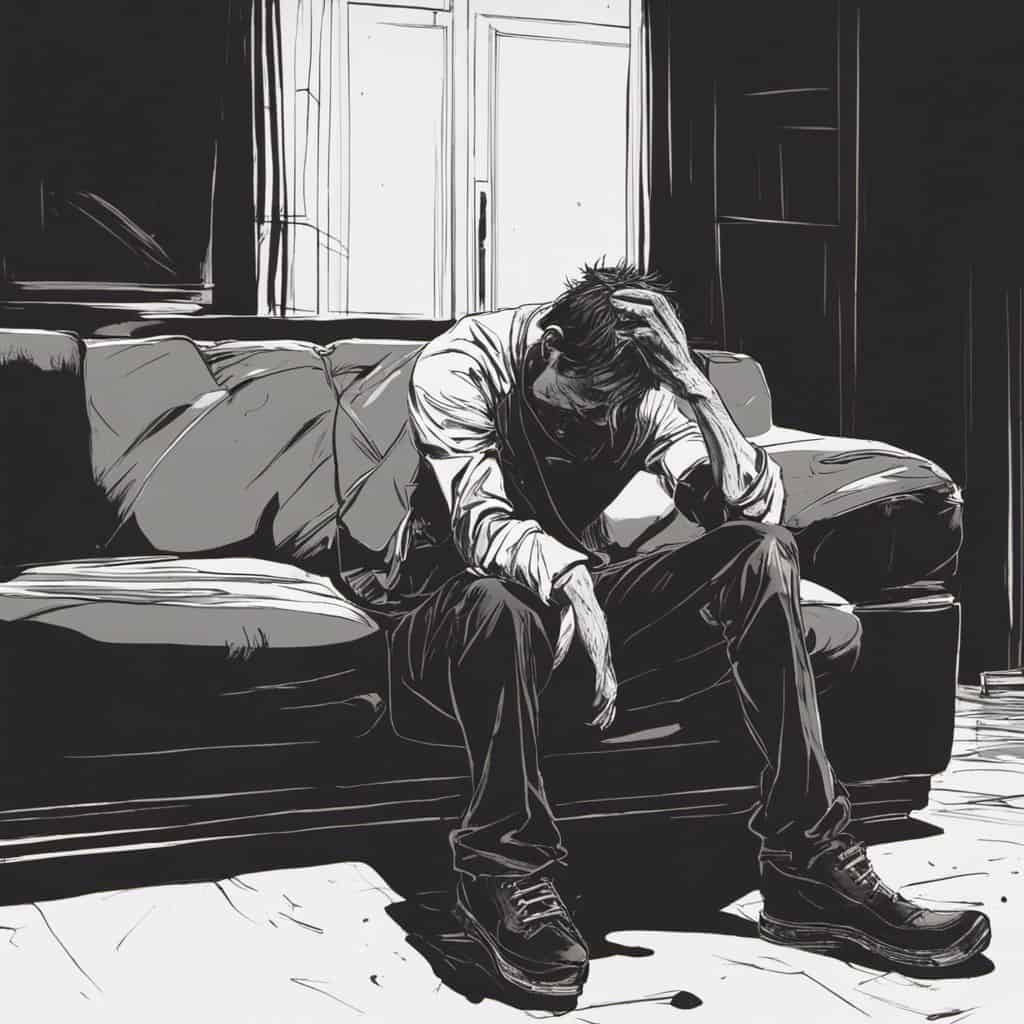There’s something about “Caraphernelia” that sticks with you. This term, introduced by Pierce the Veil in their 2010 album, “Selfish Machines,” is more than just a song title—it’s a deep dive into the aftermath of love and the memories that linger.
Lead singer Vic Fuentes pulls from his breakup with ‘Cara,’ blending her name with the idea of leftover “paraphernalia” or belongings. Fans everywhere have debated the term’s origins, but its real power lies in its relatability.
Whether you see ‘Caraphernelia‘ as a made-up word or a symbol of the baggage we carry post-breakup, one thing’s clear: Pierce the Veil has struck a chord that continues to resonate.
Origins of Caraphernelia

The song is about Fuentes’ ex-girlfriend, Cara, who left some possessions at his house after they broke up. The title “Caraphernelia” is a clever play on words that effectively captures the emotions and themes of the song.
It combines the name of the person who inspired the song with a word representing the lingering effects of a past relationship. The title is memorable and unique, fitting for a song dealing with a personal and relatable topic.
Fuentes was inspired to write the song after seeing Cara’s belongings left behind at his house. After they broke up, Cara left some of her possessions at Fuentes’ house, including her razor, makeup, shampoo, and toothbrush.
Fuentes found himself thinking about her when he saw these items, which led to the song’s creation. The lyrics describe Fuentes’ struggle to move on from their relationship and his obsession with the idea of getting her back.
The song features guest vocals from Jeremy McKinnon, the lead vocalist of the band A Day to Remember. Fuentes asked McKinnon to collaborate on the song, and he sang the chorus and bridge.
The collaboration between Fuentes and McKinnon was a success, and the song became one of Pierce the Veil’s most popular songs. The emotional lyrics and catchy melody resonated with fans, and “Caraphernelia” remains a fan favorite.
Lyrics Analysis
The chorus of “Caraphernelia” repeats the line,
“Burn your name into my throat, I’ll be the ink stain on your bed sheet.”
This line can be interpreted as the speaker’s desire to leave a permanent mark on their ex-partner, even though the relationship has ended. The metaphor “ink stain” suggests that the speaker wants to be remembered and leave a lasting impression on their ex-partner’s life.
The bridge of the song includes the lines,
“Collide invisible lips like a shadow on the wall and just long enough for a moment before it’s gone.”
This section can be interpreted as the speaker recalling a moment of intimacy with their ex-partner.
The metaphor “invisible lips” suggests that the moment was fleeting and may have been imagined or idealized. Likewise, the mention of “shadow on the wall” implies that the memory is haunting the speaker, and they cannot let go of it.
The repetition of specific phrases, such as “burn your name into my throat,” emphasizes the speaker’s fixation on their ex-partner.
Symbolic Representation

“Caraphernelia” by Pierce the Veil is rich in symbolism. The lyrics are full of imagery representing a broken relationship’s emotional turmoil. Here are some of the symbols used in the song:
- Bleeding little blue boy: This phrase describes the new love interest of the singer’s ex-girlfriend. The color blue is often associated with sadness, and the word “bleeding” implies pain. The phrase represents the singer’s jealousy and hurt over his ex-girlfriend moving on.
- Dizzy dreamer: The singer uses this phrase to describe the person he loves. The word “dizzy” implies feeling overwhelmed or disoriented, while “dreamer” suggests a romantic, idealistic nature. The phrase represents the singer’s admiration and affection for his ex-girlfriend.
- Burn your name: This phrase appears in the chorus of the song. The act of burning something is often associated with destruction and finality. The phrase represents the singer’s desire to erase the memory of his ex-girlfriend and move on from the relationship.
- Fire: Fire is a common symbol in literature and music, often representing passion, intensity, and destruction. In “Caraphernelia,” the fire represents the singer’s intense emotions and the pain of the breakup.
- Picking up the pieces: This phrase appears in the song’s final verse. The act of picking up broken pieces represents healing and moving on after a challenging experience. The phrase represents the singer’s hope for a better future after the pain of the breakup.
Story Behind the Song
The song is about a man who is heartbroken over his ex-girlfriend leaving him.
He struggles to move on and is obsessed with getting her back. He feels he can’t live without her and will do anything to win her back, even if it means hurting himself. The lyrics express his desperation and the pain he is feeling.
The song’s lyrics vividly depict the protagonist’s emotional state. He is consumed by his love for his ex-girlfriend and will do anything to win her back.
The lyrics also suggest that the relationship was not healthy, as the protagonist refers to his ex-girlfriend’s new love interest as a “bleeding little blue boy” and describes her as a “dizzy dreamer.” These descriptions suggest that the protagonist’s ex-girlfriend was perhaps flighty or prone to poor decisions.
Personal Belongings and Their Significance
When Victor Fuentes and his girlfriend, Cara, broke up, she left behind some of her personal belongings at his place.
These belongings held a special significance for Fuentes as they reminded him of Cara and their time together. In this section, we will take a closer look at some of the personal belongings left behind by Cara and their significance.
Razor and Necklace
One of the personal belongings left behind by Cara was a razor. This razor held a special significance for Fuentes as it reminded him of their intimate moments. The razor represented the physical closeness they once shared and its associated memories.
Another personal belonging left behind by Cara was a necklace, which held sentimental value for Fuentes as it was a gift from him to Cara. It represented their love for each other and the bond they once shared.
Travel Shampoo and Toothbrush
Cara also left behind some travel-sized toiletries, including shampoo and a toothbrush. These items held a practical significance for Fuentes as they reminded him of Cara’s presence in his life. They represented the small but significant ways Cara had made her mark on his life.
Miscellaneous Articles
Besides these, Cara left behind other miscellaneous articles that held varying degrees of significance for Fuentes.
These items included a hairbrush, a pair of earrings, and a few clothing items. These items held a unique significance for Fuentes and reminded him of Cara’s presence.
Emotional Undertones

The emotional undertones in “Caraphernelia” are a prominent aspect of the song. The lyrics express a deep sense of pain and desperation that the protagonist feels after being left by his partner. He struggles to move on and is obsessed with winning her back, even if it means hurting himself.
The song’s emotional undertones are evident in lines like
“I can’t escape the way I love you”
and
“I’ll never let you go, if you promise not to fade away.”
These lyrics convey the protagonist’s deep love for his partner and his fear of losing her forever. The powerful vocals and heavy instrumentation further amplify the song’s emotional intensity.
Despite the song’s emotional intensity, there are moments of happiness and hope. For example, the line,
“I’ll be your happy ending”
suggests that the protagonist believes he and his partner can be happy together. However, this hope is tempered by the fear of losing her, as expressed in the line,
“I’ll never let you go.”
The emotional undertones in “Caraphernelia” are complex and multifaceted. The song describes a range of emotions, from pain and desperation to hope and happiness, conveyed through powerful lyrics, vocals, and instrumentation.
Other Songs from Selfish Machines
Selfish Machines is the second studio album by Pierce the Veil. The album features 12 songs, including the famous track “Caraphernelia.” Here are some other notable songs from the album:
- “Besitos” – Co-written by Dave Yaden, “Besitos” is the album’s opening track. The song features a catchy chorus and driving guitars and is one of the band’s most popular songs.
- “Bulletproof Love” – This emotional ballad showcases the band’s ability to write powerful lyrics and passionately deliver them. The song features acoustic guitars and a soaring chorus, making it a fan favorite.
- “The Boy Who Could Fly” – Co-written with ex-A Day to Remember guitarist Tom Denney, this song features a driving beat and catchy chorus. The lyrics tell the story of a boy who dreams of escaping his problems.
Selfish Machines is a strong album that showcases Pierce the Veil’s unique blend of post-hardcore, emo, and pop punk. The band’s ability to write catchy hooks and emotional lyrics has earned them a dedicated fanbase and critical acclaim.
Live Performances
Pierce the Veil has performed “Caraphernelia” live numerous times, including during their 2015 tour and at Reading Festival 2015. In live performances, the song takes on a new energy, with the crowd often singing along to the catchy chorus.
During live performances, lead vocalist Vic Fuentes often sings alone on stage, accompanied by the rest of the band. Fuentes’ powerful vocals and emotional delivery of the lyrics add a personal touch to the song, which resonates with fans.
In some live performances, the band has also incorporated extended guitar solos and drum fills, showcasing their musical talent and adding to the excitement of the performance.
Fan Reactions and Interpretations

The song “Caraphernelia” by Pierce the Veil has garnered much attention from fans trying to decipher its meaning.
Some fans believe that the song is about a toxic relationship that the protagonist cannot let go of, while others interpret the song as an ode to lost love, with the protagonist reminiscing about the good times he shared with his ex-girlfriend.
Many also speculated that the song is about betrayal and heartbreak. They believe that the protagonist’s ex-girlfriend cheated on him while he was away, and he struggles to accept the betrayal.
Another group of fans have even gone as far as to suggest that the song is autobiographical, with lead singer Vic Fuentes drawing inspiration from his experiences.
But despite the varying interpretations, one thing is clear: “Caraphernelia” is an anthem for anyone who has ever experienced heartbreak or a toxic relationship. It continues to be one of Pierce the Veil’s most popular tracks.
Conclusion
“Caraphernelia” by Pierce the Veil is a song about a man’s heartbreak over his partner leaving him. The lyrics express his desperation and pain as he struggles to move on and is obsessed with the idea of winning her back.
The song’s meaning is relatable to anyone who has experienced heartbreak and the pain of losing someone they love. The lyrics convey the intense emotions felt during a breakup and the struggle to move on.
Its popularity is a testament to its ability to connect with listeners on a deep emotional level.
Frequently Asked Questions
What is the meaning of the word ‘caraphernelia’?
‘Caraphernelia’ is a portmanteau of the name ‘Cara’ and the word ‘paraphernalia.’ The word is used to describe personal belongings left behind by an ex-lover.
What is the origin of the word ‘caraphernelia’?
The word ‘caraphernelia’ was first used by Vic Fuentes, the lead vocalist of Pierce the Veil, in the song of the same name. The song was written about Fuentes’ ex-girlfriend, Cara.
How is ‘caraphernelia’ used in a sentence?
‘Caraphernelia’ is used to describe personal belongings left behind by an ex-lover. For example, “I still have some of my ex’s caraphernelia at my house.”
What is the significance of ‘caraphernelia’ in Pierce the Veil’s music?
‘Caraphernelia’ is a recurring theme in Pierce the Veil’s music. The band often writes about heartbreak and the aftermath of failed relationships.
What is the meaning behind the ‘caraphernelia’ tattoo?
Many fans of Pierce the Veil have gotten tattoos of the word ‘caraphernelia.’ The tattoo is often seen as a symbol of heartbreak and the pain of failed relationships.
Who is responsible for the screaming in Pierce the Veil’s music?
Vic Fuentes is responsible for the screaming in Pierce the Veil’s music. He is known for his unique vocal style, which combines singing and screaming.
